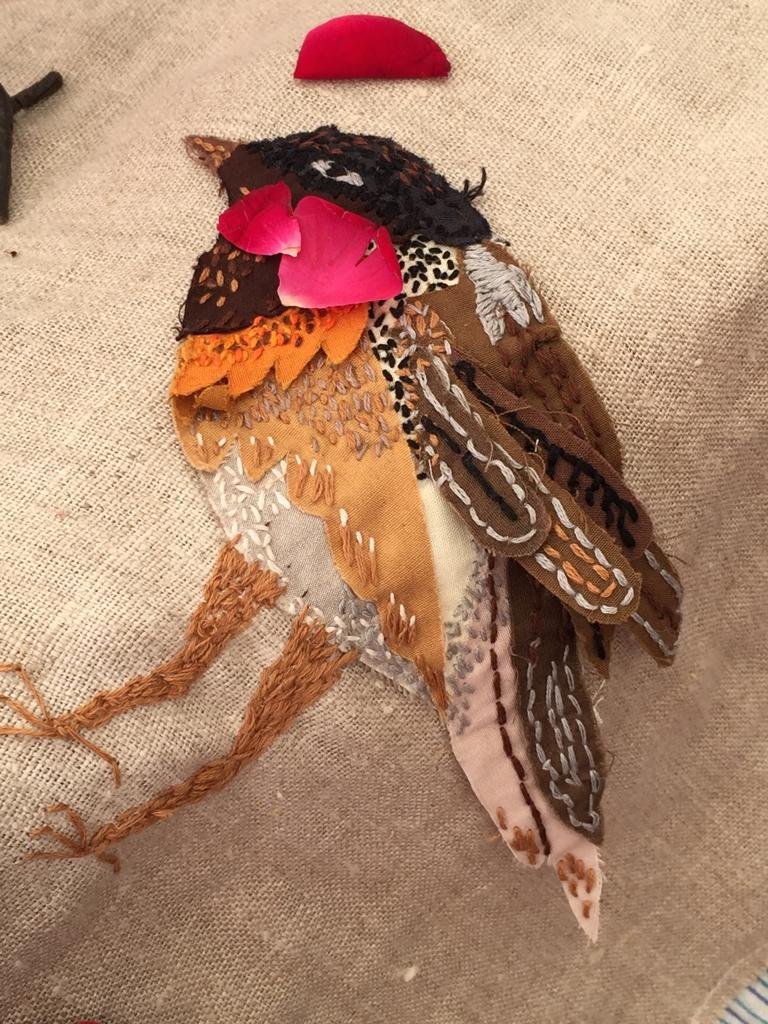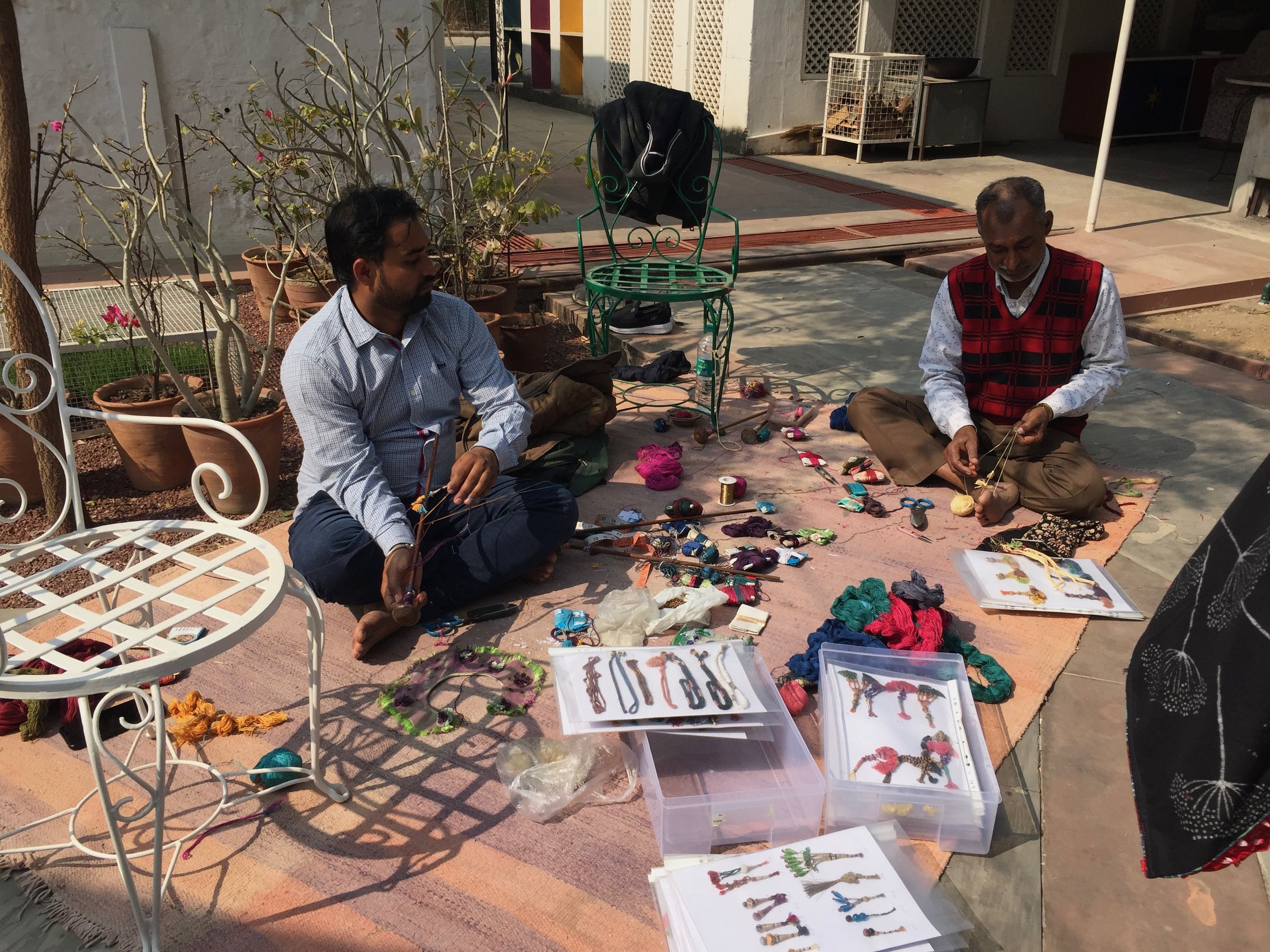Course Leaders
Lucy Goffin’s long and illustrious career has included commissions as diverse as embellishing Jean Muir’s couture line, stitching a Charles I Coat of Arms for The Banqueting House, Whitehall; taking up a year-long artist’s residency at Great Dixter House & Garden in Sussex and lecturing on British textiles in New Zealand, Tokyo and Kyoto. And of course many, many unique garments made for private clients. Goffin’s finely-tuned appreciation of intricate textile detail is gleaned from her travels, most notably India, where, since 1988, she has enjoyed a long and fruitful collaboration with the Jaipur-based design company Anokhi. It was an introduction to Faith Singh, the owner of Anokhi, that set Goffin on a new path. Inspired by the local textile and stitch techniques, over the years, Goffin has spent time living in villages in the Rajasthan desert learning firsthand from the artisans about their traditional and intuitive stitch techniques, resulting in many projects for Anokhi, and making a line of garments for the Anokhi museum in Jaipur.
You can find Lucy's work on www.materialbeing.uk
Rachna Singh is a textile artist and designer with a Masters in Drawing & Painting, from Allahabad University, Post Graduate in Textile Design, from Indian Institute of Crafts & Design, Jaipur. After working in textile crafts at various capacities for 15 years, in 2016 she persued a semester in Fashion Product Design from the London College of Fashion and runs her own line of sustainable clothing in Jaipur.
About Anokhi
Founded by John and Faith Singh in 1970, ANOKHI began when Jaipur’s block printing industry was at a very low ebb. Modern manufacturing processes had already marginalized handmade practices, the local patronage system was effectively lost and customers were steadily diminishing. To help revitalise these age-old skills, ANOKHI started working with craftspeople in and around Jaipur: block carvers and printers, dyers, embroiderers and bead workers. ANOKHI became known as an alternative role model for good business practices and its ongoing commitment to the revival of traditional textile skills. ANOKHI went on to found Anokhi Museum of Hand Printing in 2005. Dedicated to the collection, preservation and interpretation of block printed fabric, exhibitions put emphasis on contemporary design and the present status of the craft while also exploring its historic roots. ANOKHI remains deeply committed to supporting traditional craftsmanship and its continued revival.










